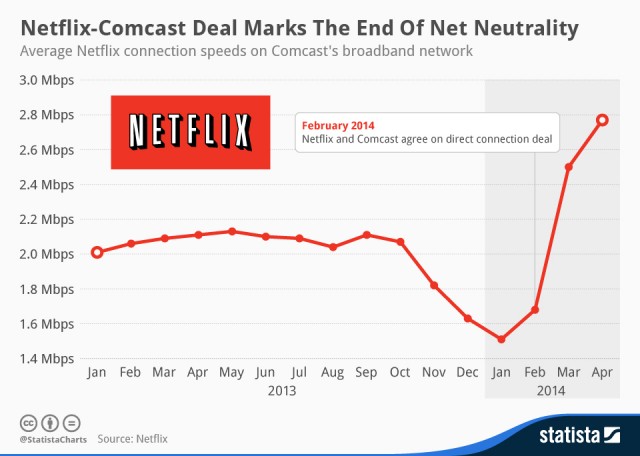http://www.youtube.com/embed/2psly3euy78
The Federal Communications Commission ruled today that Internet service and wireless providers are not allowed to slow down the speed of certain websites or create "fast lanes" for other sites that pay extra. Providers also can't flat-out block access to certain services.
In their 3-2 vote, the FCC decided that the Web should be regulated similarly to a public utility -- much like phone companies -- in an effort to ensure equal access for consumers and fair competition for website operators. That means Internet service providers (ISPs), who have gone largely unregulated since the dawn of the Web, will now have to follow a standard set of rules on privacy, transparency and nondiscrimination.
The vote is a victory for advocates of "net neutrality," which basically ensures that the Internet remains an equal playing field. Web traffic has been, and should continue to be treated equally, they say, free of manipulation by ISPs who might be inclined to favor some businesses over others by slowing down or speeding up specific content. Some of the biggest supporters are Silicon Valley giants like Google and Facebook who argue that it's essential for giving start-ups and small companies a fighting chance. Its absence, they charge, would inevitably create a pay-to-play outcome, favoring the big guys and limiting Web innovation and the diversity of services available to users.
But opponents -- mainly big service providers like Verizon and Comcast -- claim the decision is a clear case of unnecessary government overreach that will result in increased operational costs and higher taxes and fees for consumers.
Although this all sounds like a big yawn fest, the decision is actually a pretty big deal, especially if you happen to use the Internet for, well, anything (like reading this blog -- which I hope loaded quickly). Not only does it mark the government's most significant intervention into the affairs of Internet providers, it means that the operations of the Web will, for now, remain largely as they've been. And that means you can rest assured that Grandma's cat grooming blog will load at exactly the same connection speed as that of Amazon.com.
